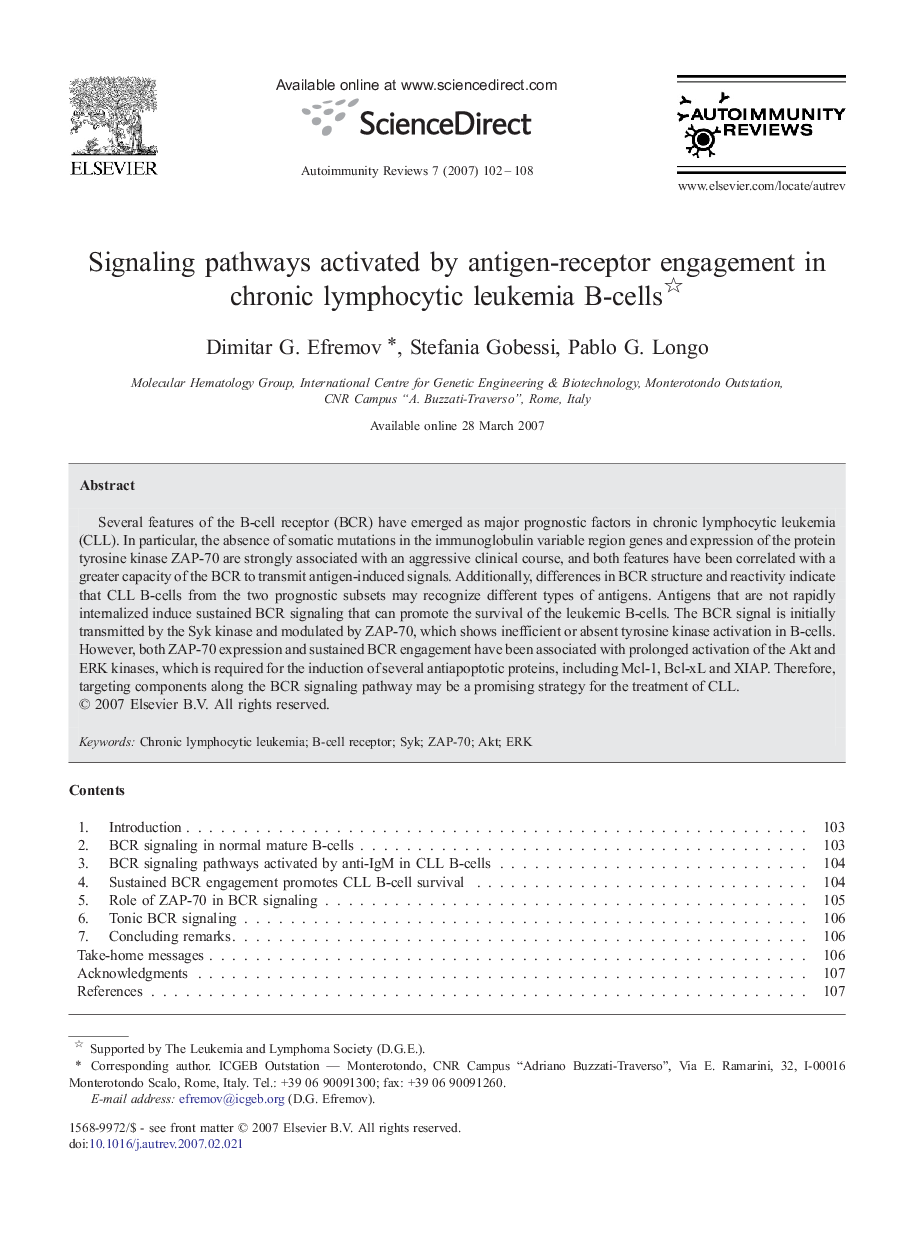| Article ID | Journal | Published Year | Pages | File Type |
|---|---|---|---|---|
| 3342520 | Autoimmunity Reviews | 2007 | 7 Pages |
Several features of the B-cell receptor (BCR) have emerged as major prognostic factors in chronic lymphocytic leukemia (CLL). In particular, the absence of somatic mutations in the immunoglobulin variable region genes and expression of the protein tyrosine kinase ZAP-70 are strongly associated with an aggressive clinical course, and both features have been correlated with a greater capacity of the BCR to transmit antigen-induced signals. Additionally, differences in BCR structure and reactivity indicate that CLL B-cells from the two prognostic subsets may recognize different types of antigens. Antigens that are not rapidly internalized induce sustained BCR signaling that can promote the survival of the leukemic B-cells. The BCR signal is initially transmitted by the Syk kinase and modulated by ZAP-70, which shows inefficient or absent tyrosine kinase activation in B-cells. However, both ZAP-70 expression and sustained BCR engagement have been associated with prolonged activation of the Akt and ERK kinases, which is required for the induction of several antiapoptotic proteins, including Mcl-1, Bcl-xL and XIAP. Therefore, targeting components along the BCR signaling pathway may be a promising strategy for the treatment of CLL.
